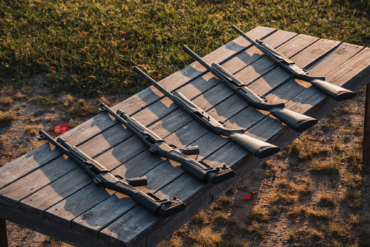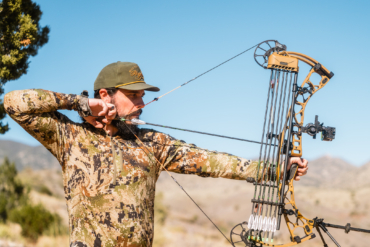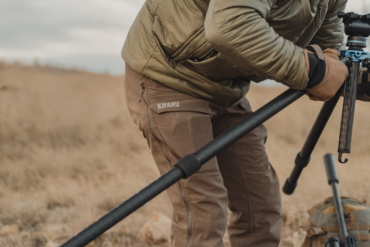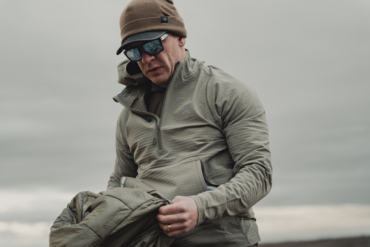Is there a place for hunting as wildlife faces more profound threats than ever before? The History Channel partners with the Cabela Family Foundation to find out.
Hunting and wildlife conservation share a long, complicated relationship, and the latest History Channel show aims to unravel it.
For “Hard Truths of Conservation,” the channel has partnered with the Cabela Family Foundation, the nonprofit wing of Cabela’s Outfitters. The show seeks to determine the role that sustainable wildlife interactions, including hunting, can play in the context of modern conservation.
Wildlife conservationist Dan Cabela, son of the original founders of Cabela’s, hosts the show. The 10-episode series will air weekly on the History Channel’s “Outdoors” block at 9 a.m. ET in half-hour episodes. It premieres Saturday, Aug. 20.
In a teaser video for the series, Cabela says that “hunting has become a controversial practice in modern times.”
“I’m traveling the world to explore the true impact that hunting is having on our remaining wild landscapes. This practice goes as far back as human history can remember,” Cabela says. “But does it have a place in modern conservation?”

Hunting and Saving
While it’s difficult for many environmentalists to understand, hunting has a long history of supporting wildlife. The phrase “sustainable use” includes many forms of conservation — including hunting.
The World Wildlife Fund says that sustainable use of resources “may include locally managed, responsible hunting.”
“[S]uch programs can reduce poaching, lead to species population growth and recovery, provide valuable income to local communities … and provide incentives for communities to engage in wildlife conservation for the long-term,” the nonprofit wrote.
That sounds exactly like what “Hard Truths of Conservation” will explore. The show aims to “expose the current realities of wildlife conservation, as well as the benefits of treating wildlife resources as both valuable and renewable,” according to a press release.
Each episode focuses on a single species and follows Cabela as he participates in conservation initiatives. He speaks with community members, wildlife managers, field technicians, and scientists for a close look at sustainability.
Given the financial backing of Cabela’s, the show could present a rosy viewpoint on hunting. However, the fact is the discipline and the revenue it generates play major roles in wildlife policy. As one North Carolina professor put it: hunting remains the backbone of wildlife conservation in the U.S.
“Hunters do more to help wildlife than any other group in America,” said Chris DePerno, a professor of fisheries, wildlife, and conservation biology at the College of Natural Resources. “They not only provide financial support for state wildlife agencies, but they also play an important role in wildlife management activities.”








